The Health Cell State of the Industry Provides Insight Into Translational Science
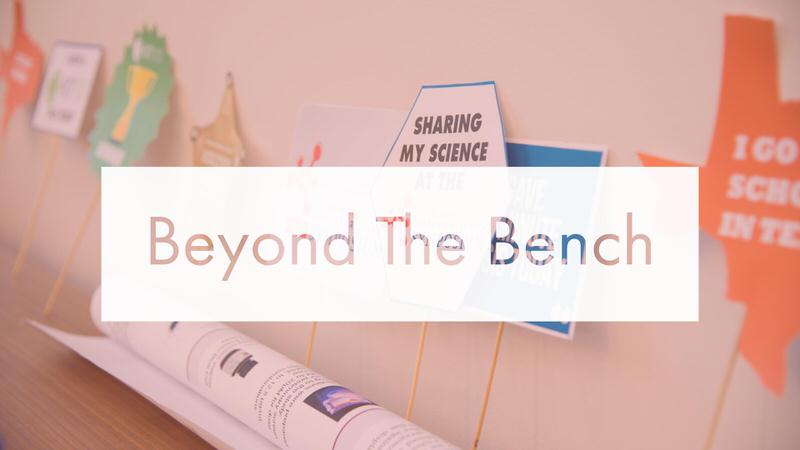
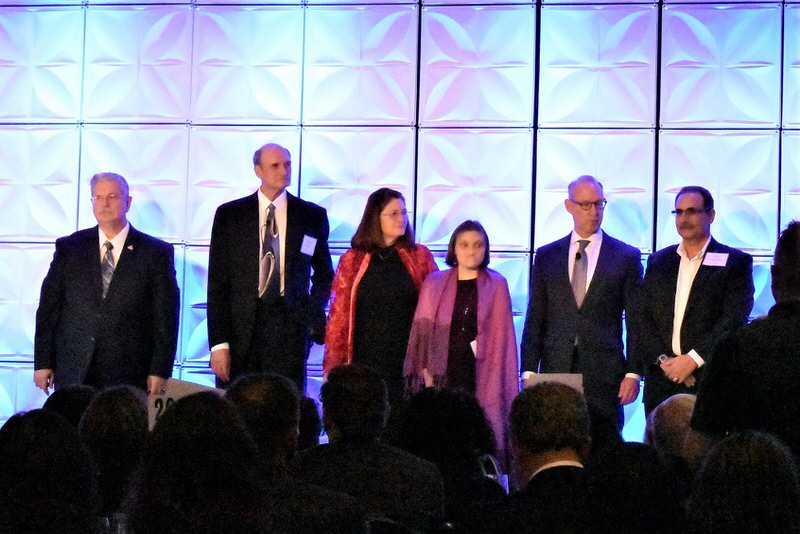 The Health Cell hosted its annual State of the Industry on Tuesday, Feb. 6 which showcased impactful stories of five individuals from different corners of the healthcare and bioscience industry. The Health Cell is a San Antonio based organization geared toward bringing together individuals across the healthcare, biomedical and biotechnology fields.
The Health Cell hosted its annual State of the Industry on Tuesday, Feb. 6 which showcased impactful stories of five individuals from different corners of the healthcare and bioscience industry. The Health Cell is a San Antonio based organization geared toward bringing together individuals across the healthcare, biomedical and biotechnology fields.
Larry Schlesinger, M.D., President and CEO of Texas Biomedical Research Institute (TBRI), in his talk on ‘Curing Science to Cure Infection’, told the story of a patient who was initially diagnosed and treated for breast cancer but who later succumbed to a nosocomial ‘superbug’ infection. He predicts that in a few decades we will see infectious diseases rise to the number one killer in the world. In an effort to promote team science, he is currently building ‘the strongest tuberculosis team’ at TBRI.
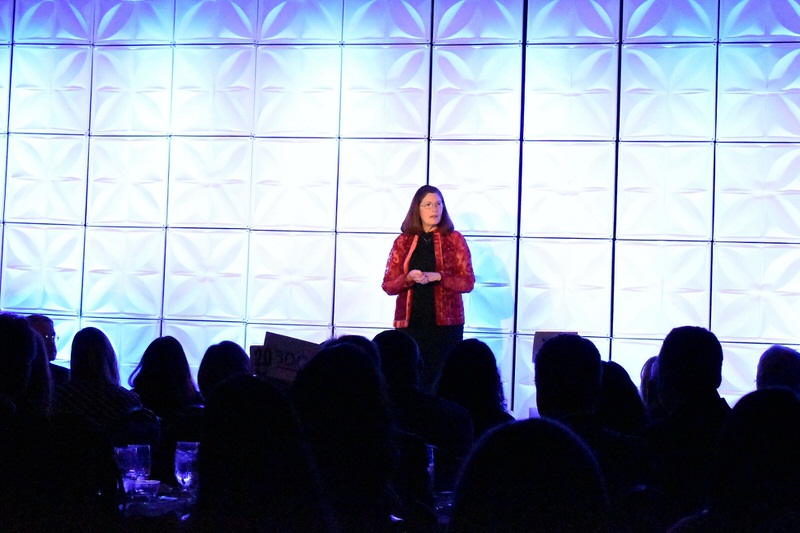 Jannine Cody, Ph.D., Director of the Chromosome 18 Clinical Research Center at UT Health San Antonio, is certainly a ‘Mom on a Mission.’ Her daughter Elizabeth was born with a rare Chromosome 18 abnormality.
Jannine Cody, Ph.D., Director of the Chromosome 18 Clinical Research Center at UT Health San Antonio, is certainly a ‘Mom on a Mission.’ Her daughter Elizabeth was born with a rare Chromosome 18 abnormality.
After discovering that Elizabeth had a growth hormone deficiency and responded well to hormone replacement therapy, Dr. Cody was determined to connect with other Chromosome 18 families to share her story and find more answers.
In 1990, she founded the Chromosome 18 Registry and Research Society and, a few years later, the Chromosome 18 Clinical Research Center in an effort to one day make Chromosome 18 abnormalities completely treatable.
Donald Jenkins, M.D., FACS, Associate Deputy Director of the Military Health Institute at UT Health San Antonio, in his ‘Saving Lives by Going Back to the Future of Blood Transfusion’, recounts his experiences in trauma care on the battlefield and his efforts to reestablish the use of whole blood, which was largely replaced in the 1970s with component blood, to treat trauma victims with significant blood loss.
He has shown that the use of whole blood, especially in pre-hospital settings, dramatically reduces mortality rates as well as post-surgery complications in trauma patients. His goal is to put cold-stored whole O+ blood in all medical helicopters and critical access centers across San Antonio.
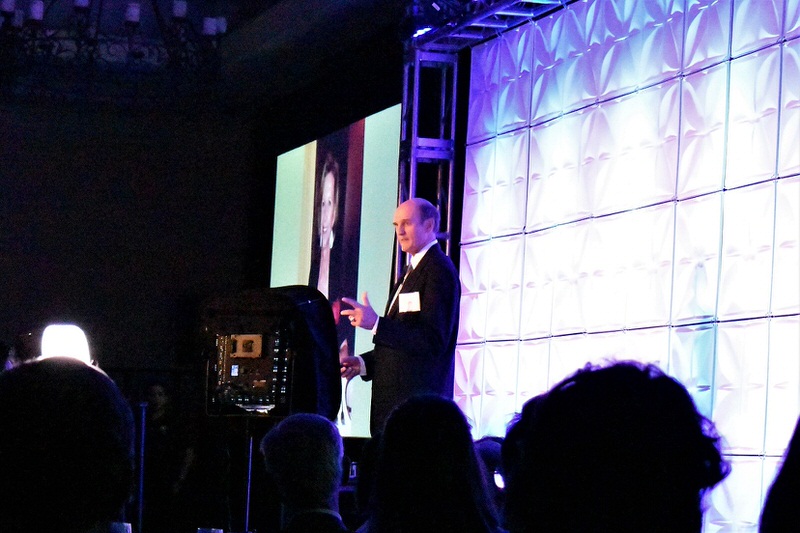 Edward Mueller, M.D., Urologist and Inventor of Sensica UO (Adaptec Medical Devices), declared that his wife challenged him find a better solution after he described his frustrations with the tedious and inaccurate process of measuring and recording urinary output which was mostly unchanged since the days of Florence Nightingale.
Edward Mueller, M.D., Urologist and Inventor of Sensica UO (Adaptec Medical Devices), declared that his wife challenged him find a better solution after he described his frustrations with the tedious and inaccurate process of measuring and recording urinary output which was mostly unchanged since the days of Florence Nightingale.
His story, ‘Measuring Up to the Challenge of a Medical Device Startup’ describes the steps he and his colleagues took to design, develop and distribute their product. Sensica UO, an automated urine output measuring and monitoring system capable of wirelessly entering data into a patient’s electronic health record, promises to be a new standard-of care in ICU and OR patient management.
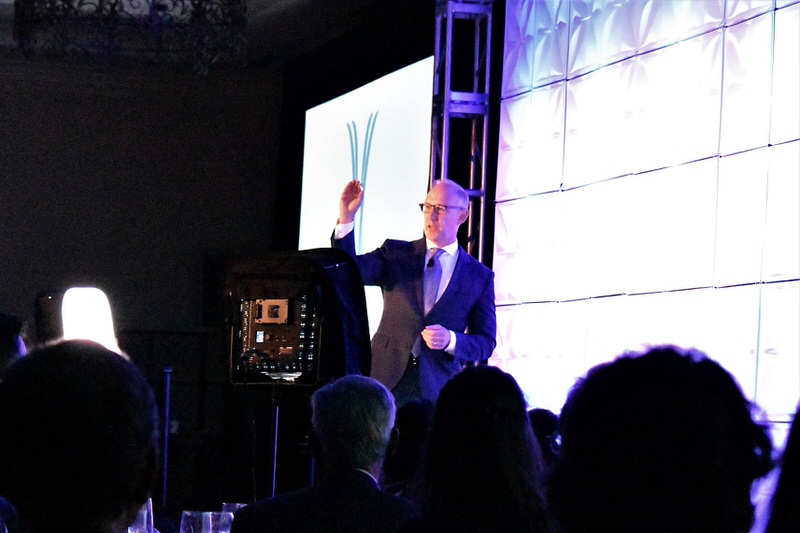 Dan Hargrove, J.D., President and CEO of Rapamycin Holdings, held up a large white pill and asked the audience, “What if a drug could make you live longer… and healthier?” He went on to present the reformulated rapamycin drug known as eRapa and its promising future in healthcare in ‘Old Drug, New Life: San Antonio Invention Slows Aging and Cancer.’
Dan Hargrove, J.D., President and CEO of Rapamycin Holdings, held up a large white pill and asked the audience, “What if a drug could make you live longer… and healthier?” He went on to present the reformulated rapamycin drug known as eRapa and its promising future in healthcare in ‘Old Drug, New Life: San Antonio Invention Slows Aging and Cancer.’
Based on animal research conducted at UT Health San Antonio, the drug has been shown to extend lifespan and delay the onset of cancer.
Clinical trials in early stage prostate cancer will begin in April at the Mays Cancer Center in collaboration with Dr. Ian Thompson. Dr. Hargrove also reminded the audience that “we have everything we need to commercialize a cutting-edge research finding like eRapa right here in San Antonio”.
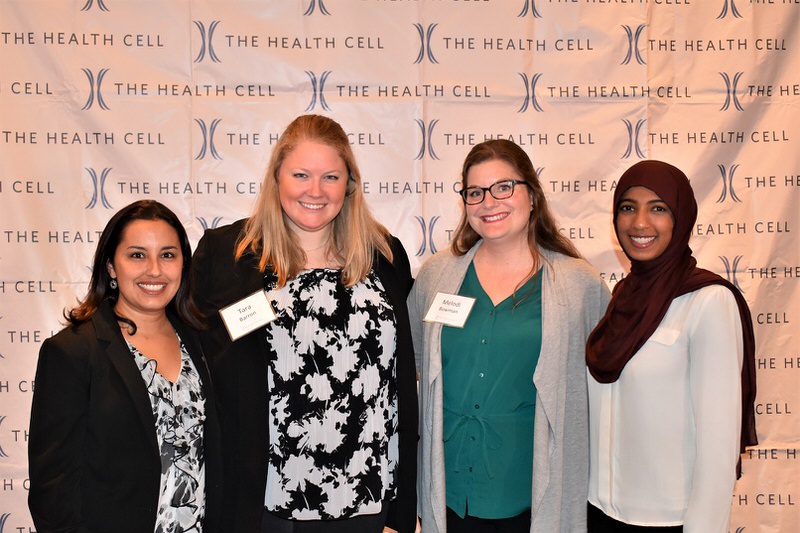 Several UT Health San Antonio graduate students had the opportunity to attend the event. Tara Barron, Ph.D. candidate in the Integrated Biomedical Sciences program, said “the Health Cell’s State of the Industry is important for creating community between scientists, health professionals and the biomedical industry in San Antonio,” and that, “as a student, attending an event such as this provides insight into how our science can be translated into the medical field and patient care and gives validation that the work we are doing at the bench matters to the community.”
Several UT Health San Antonio graduate students had the opportunity to attend the event. Tara Barron, Ph.D. candidate in the Integrated Biomedical Sciences program, said “the Health Cell’s State of the Industry is important for creating community between scientists, health professionals and the biomedical industry in San Antonio,” and that, “as a student, attending an event such as this provides insight into how our science can be translated into the medical field and patient care and gives validation that the work we are doing at the bench matters to the community.”
To learn more about the Health Cell and their upcoming events, please visit http://thehealthcell.org.
About the Author
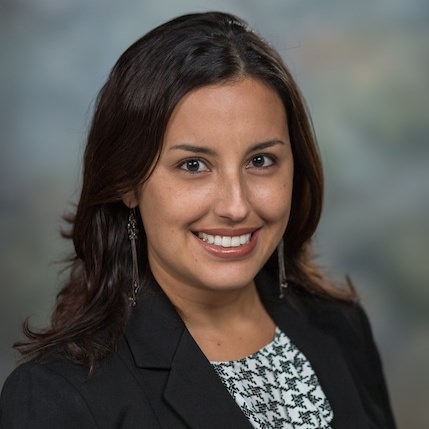 Shahida Flores is a Ph.D. candidate in the lab of Dr. Patricia Dahia. She is in the Cell Biology, Genetics, and Molecular Medicine discipline of the Integrated Biomedical Sciences program at the Graduate School of Biomedical Sciences at UT Health San Antonio.
Shahida Flores is a Ph.D. candidate in the lab of Dr. Patricia Dahia. She is in the Cell Biology, Genetics, and Molecular Medicine discipline of the Integrated Biomedical Sciences program at the Graduate School of Biomedical Sciences at UT Health San Antonio.
The “Beyond The Bench” series features articles written by students and postdoctoral fellows at The University of Texas Health Science Center San Antonio.
